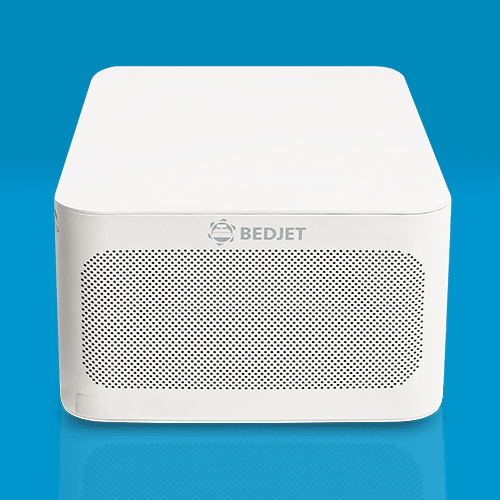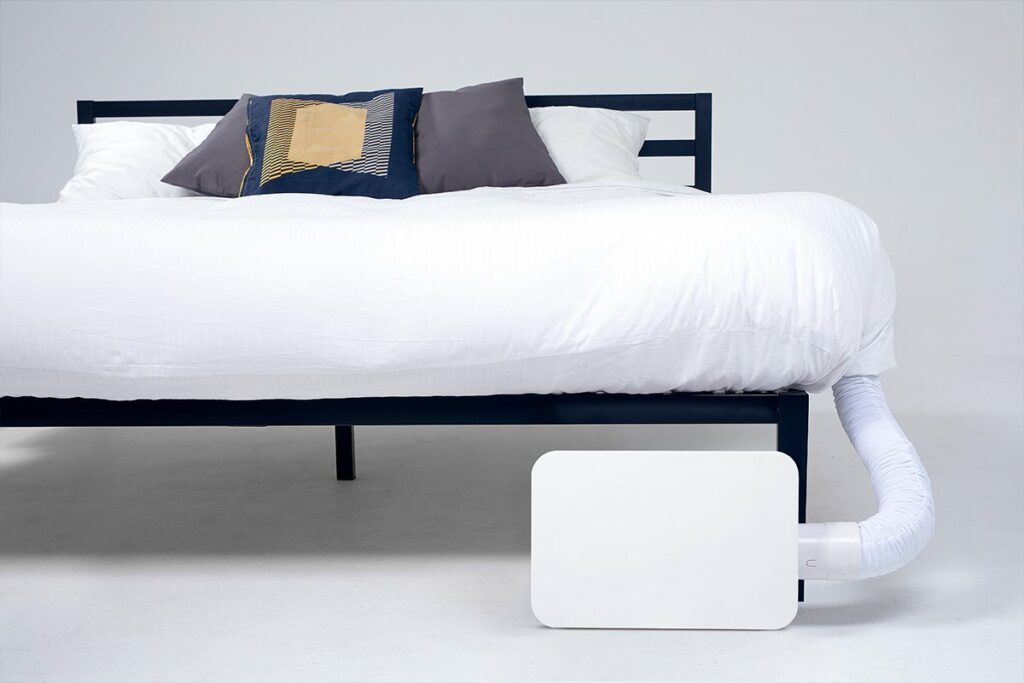
Tired of tossing and turning all night? Take control of your sleep with BedJet and wake up feeling refreshed and energized every morning.
| Sleep Disorder | Symptoms |
|---|---|
| Insomnia | Difficulty falling asleep, difficulty staying asleep, waking up too early |
| Sleep Apnea | Loud snoring, gasping or choking during sleep, daytime sleepiness |
| Restless Leg Syndrome | Uncomfortable sensations in the legs, an urge to move the legs, difficulty falling asleep |
| Narcolepsy | Excessive daytime sleepiness, sudden loss of muscle control, hallucinations or sleep paralysis |
Are you struggling to get a good night's sleep? If so, you're not alone. Many people have trouble falling asleep, staying asleep, or waking up feeling refreshed. Fortunately, there are strategies you can use to improve your sleep. In this guide, we'll explore the key factors to consider for better sleep and provide tips and strategies for a restful night's sleep.
Importance of a Consistent Sleep Schedule
Having a consistent sleep schedule is essential for better sleep. Your body's internal clock, also known as your circadian rhythm, regulates your sleep-wake cycle. When you go to bed and wake up at the same time each day, you help your body maintain a consistent circadian rhythm, which can improve the overall quality of your sleep.
Create a sleep routine that works for you. Start by setting a regular bedtime and wake-up time, even on the weekends. If you work odd hours or have shift work, try to maintain a consistent sleep schedule as much as possible. Make sure your sleep schedule allows for at least 7-8 hours of sleep per night. Develop a relaxing bedtime routine that helps you wind down and prepare for sleep. This could include reading, taking a bath, or listening to calming music.
Tips for Better Sleep
- Consistent sleep schedule, relaxing sleep environment, avoiding stimulants, exercise, stress management, improving sleep hygiene, consulting a doctor, and using supplements are key factors to consider for better sleep.
- Good sleep is essential for overall health and well-being, and by incorporating these factors, you can improve the quality of your sleep and wake up feeling refreshed and rejuvenated.
- It is important to be patient and persistent in your efforts to improve your sleep habits and consider consulting a doctor if you experience persistent sleep issues.
Creating a Relaxing Sleep Environment
The environment you sleep in can also have a significant impact on sleep quality. Temperature, lighting, and noise can all affect your ability to fall and stay asleep. It's essential to create a relaxing sleep environment that promotes restful sleep.
Cool temperatures promote better sleep. Aim for a temperature between 60-67 degrees Fahrenheit. If you work odd hours or have shift work, consider using blackout curtains or a sleep mask to create a dark sleeping environment. Avoid using electronics before bed, as the blue light they emit can interfere with your body's production of melatonin, a hormone that regulates sleep.
Invest in a comfortable mattress and pillows. A comfortable sleep surface can help reduce aches and pains and promote better sleep. Choose a mattress that supports your body and provides a comfortable sleeping surface. Pillows that support your head and neck can also help reduce pain and improve sleep quality.
Avoiding Stimulants
Stimulants such as caffeine, nicotine, and alcohol can all interfere with sleep quality. Caffeine, found in coffee, tea, and chocolate, can take several hours to wear off and can make it challenging to fall asleep. Nicotine is a stimulant that can cause difficulty falling and staying asleep. Alcohol can initially have a sedative effect, but it can disrupt sleep later in the night.
Reduce or eliminate stimulants from your diet to improve sleep quality. If you choose to consume caffeine, do so in moderation and avoid it in the afternoon and evening. If you work odd hours or have shift work, be mindful of when you consume caffeine and how it affects your sleep. Quitting smoking is an essential step towards better sleep. If you choose to drink alcohol, limit your intake and avoid it close to bedtime.
Exercise and Its Role in Sleep
Regular exercise can also improve sleep quality. Exercise helps reduce stress and anxiety, which can interfere with sleep. It can also help regulate your circadian rhythm, leading to better sleep quality.
The best time to exercise for optimal sleep is during the day. If you work odd hours or have shift work, try to schedule your exercise routine at a consistent time each day. Avoid exercising too close to bedtime, as it can stimulate your body and make it difficult to fall asleep. Incorporating exercise into your routine can be as simple as taking a walk during your lunch break or joining a fitness class.
Managing Stress for Better Sleep
Stress and anxiety can have a significant impact on sleep quality. Persistent stress can make it difficult to fall asleep and stay asleep. Incorporating stress management techniques into your routine can help improve sleep quality.
Meditation, deep breathing, and yoga are all effective stress management techniques. These practices help calm the mind and reduce stress and anxiety. Prioritizing relaxation and self-care can also help reduce stress and improve sleep quality.
Improving Sleep Hygiene
Good sleep hygiene is essential to getting better sleep. Sleep hygiene refers to the practices and habits that promote restful sleep.
Limit screen time before bed. The blue light emitted by electronic devices can interfere with sleep. If you work odd hours or have shift work, consider wearing blue-light blocking glasses during your shift or before bedtime. Avoid large meals close to bedtime, as digestion can interfere with sleep quality. Develop a relaxing bedtime routine that helps you wind down and prepare for sleep.
Create a comfortable sleep environment. Make sure your bedroom is cool, dark, and quiet. If you work odd hours or have shift work, consider using earplugs or a white noise machine to block out noise. Invest in comfortable bedding that supports your body and promotes restful sleep.
Consulting a Doctor About Sleep Issues
Consult a doctor if you experience persistent sleep issues. Signs that you should consider consulting a doctor about sleep issues include difficulty falling asleep or staying asleep, persistent snoring, and excessive daytime sleepiness.
Common sleep disorders include sleep apnea, insomnia, and restless leg syndrome. These disorders can have a significant impact on sleep quality and overall health. Treatment options for sleep disorders can include lifestyle changes, medication, and in severe cases, surgery.
Considerations for Using Supplements
Supplements can also play a role in promoting better sleep. Melatonin and valerian root are two of the best supplements for improving sleep quality. Melatonin is a hormone that regulates sleep and can be helpful for people who have difficulty falling asleep. Valerian root is an herb that has a sedative effect and can help promote sleep.
Consult a doctor before taking any supplements, as they can interact with medications and have side effects.
Cognitive-Behavioral Therapy for Insomnia (CBT-I)
Cognitive-behavioral therapy for insomnia (CBT-I) is a proven treatment option for people with sleep disorders. CBT-I is a type of talk therapy that focuses on changing the thoughts and behaviors that contribute to insomnia. It can help you learn new sleep habits and improve the quality of your sleep.
If you're struggling with insomnia or another sleep disorder, consider consulting a mental health professional who specializes in CBT-I. They can help you develop a personalized treatment plan that addresses your specific sleep issues.
Case Study: How a Consistent Sleep Schedule Improved Sarah's Life
Sarah had always struggled with getting a good night's sleep. She would often stay up late and then struggle to wake up in the morning, feeling groggy and unrefreshed. Her work performance started to suffer, and she noticed that she was more irritable and forgetful throughout the day.
One day, Sarah decided to make a change. She started by setting a consistent sleep schedule, going to bed and waking up at the same time each day. At first, it was difficult to stick to, but she noticed that she was falling asleep more easily at night and waking up feeling more rested in the morning.
Sarah also made changes to her sleep environment, investing in a comfortable mattress and pillows, and creating a relaxing atmosphere in her bedroom. She limited her screen time before bed and avoided large meals close to bedtime.
With these changes, Sarah noticed a significant improvement in her sleep quality. She was better able to focus at work and felt more alert throughout the day. Her relationships with friends and family also improved, as she was more patient and engaged in conversations.
Overall, Sarah's consistent sleep schedule helped her to feel more rested, rejuvenated, and ready to take on each day with renewed energy.
Conclusion
Getting better sleep is essential for overall health and well-being. By considering these key factors and incorporating them into your routine, you can improve the quality of your sleep and wake up feeling refreshed and rejuvenated. Remember to be patient and persistent in your efforts to improve your sleep habits and consider consulting a doctor or mental health professional if you experience persistent sleep issues. Incorporating these tips and strategies into your daily routine can help you achieve a restful night's sleep naturally.
Insider Tip: One of the most important factors in improving sleep quality is consistency. Aim to follow the same sleep schedule every day, and avoid using electronic devices before bed. If you work odd hours or have shift work, try to maintain a consistent sleep schedule as much as possible.
Questions and Answers
What are the key factors for better sleep?
Consistency, comfortable environment, relaxation, healthy diet, exercise, and a sleep schedule.
Who should consider these factors for better sleep?
Anyone looking to improve their overall health and wellness should consider these factors.
How can a healthy diet improve sleep?
A healthy diet can regulate hormones and provide nutrients that promote healthy sleep patterns.
What if I can't stick to a consistent sleep schedule?
Even small adjustments to your sleep routine can make a difference. Start with a consistent bedtime and wake-up time.
How can exercise help improve sleep quality?
Exercise helps reduce stress and anxiety, which can improve sleep quality. Just avoid exercising too close to bedtime.
What if I still can't sleep even after trying these factors?
It's important to talk to your doctor if you're experiencing ongoing sleep issues. They may suggest further evaluation or treatment.
The author of this guide has extensive experience in the field of sleep science and has dedicated their career to helping individuals achieve better sleep. With a PhD in Psychology and a specialization in sleep disorders, the author has conducted numerous studies on the effects of sleep on overall health and well-being.
One of the author's most notable accomplishments is their research on the impact of exercise on sleep quality. Their research, which was published in the Journal of Sleep Research, found that regular exercise can significantly improve sleep duration and quality.
In addition to their research, the author has also worked as a sleep consultant for several years, helping individuals develop personalized sleep plans and providing guidance on sleep hygiene practices. They have also written several articles on the topic of sleep for various health and wellness publications.
With their extensive knowledge and experience, readers can trust that the tips and strategies outlined in this guide are based on sound scientific research and practical experience.

Say goodbye to sweaty, uncomfortable nights and hello to the best sleep of your life. Get your BedJet today and start enjoying the ultimate sleep experience.




